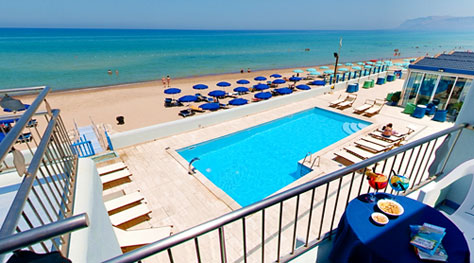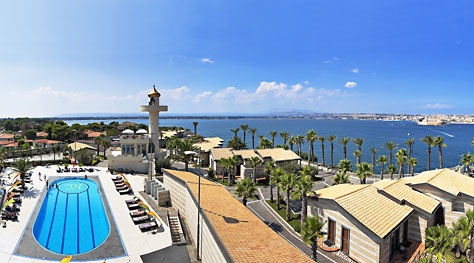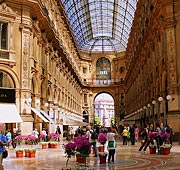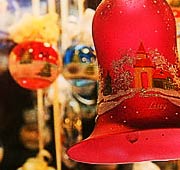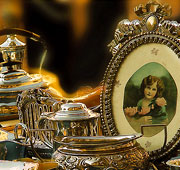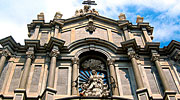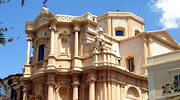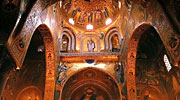Edible Souvenirs
Sweet-toothed Sicily: delicious treats to take home and eat.
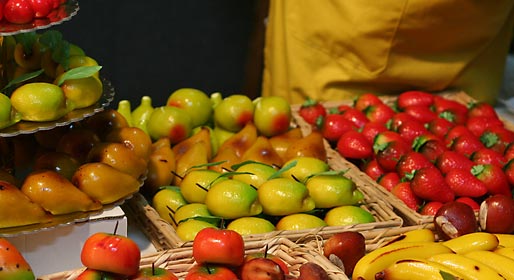
When in Sicily, only calorie conscious fools would miss the opportunity of indulging in a feast of sweet sticky Italian stuff, and of collecting a caseload of edible souvenirs (to devour as soon as they get back home).
Sicily's celebrity cake-makers
In Sicily, cake-making is such a revered art that pastry chefs often become eminent members of society, to be admired and respected, if not worshiped.
One such renowned patissier is Corrado Assenza, who proved prophetic in his use of exclusively natural ingredients to produce his sweet masterpieces.
Assenza's homebase is Caffè Sicilia, on Noto's Corso Vittorio Emaunele, just steps away from the cathedral, in what was once a small pastry kitchen owned by his aunt. From here he aims to transmit the heady baroque excitement of the city through his cakes, creams and jams, in which the quality of the ingredients used is always the top priority.
Although the variety of sweet delicacies is infinite, the choice of edible souvenir often concludes in a head-to-head between Crema di Pistacchio (pistachio cream) and Marmellata di Pompelmi Rosa (pink grapefruit jam). Whilst their gifts are being wrapped, savvy customers seek sustenance in the form of a fresh cannolo and a glass of one of Assenza's crushed ice drinks
Another name associated with Sicily's pastry-making elite is that of Salvatore Cappello who, together with his son, runs the Pasticceria Cappello in Via Colonna Rotta 68 in Palermo. Salvatore Cappello's love for the industry has become a family passion, resulting in heavenly chocolate based concoctions (his chocolate and coffee Kenia cake, is simply divine) and delicious variations of Palermo's traditional pastries. Not to be missed are the Sfinci di Cappello, an incredibly rich version of the traditional Sfingi di San Giuseppe, whopping great éclairs bursting with a creamy filling made with fresh ricotta cheese, chunks of chocolate, candied orange, and pinenuts.
Divine delicacies
Those wishing to go home with more than the memory of the colors and flavors of the region tucked into their suitcase, should purchase a box or two of "Martorana" marzipan fruits.
This delicacy was invented by Benedictine nuns who lived in the convent founded in 1193 by the noble lady Elisa Martorana. In their benefactor's honor, the nuns modeled marzipan in to the forms of Sicily's most famous fruits.
The success of these preparations was such that the confectioner's corporation aspired to claim the absolute monopoly, which they managed to do in 1575, the same year in which the nuns were officially forbidden to make Fruits of Martorana, because this was an activity which distracted them from their prayers.
The history of Sicilian pastry making is based on rare items of documentary evidence, any number of colorful local legends, and entertaining personal anecdotes such as those recounted by Maria Grammatico, the Erice-born pastry chef whose life story could fill the pages of more than one block buster novel.
At the age of 11, Grammatico entered a convent where the nuns baked biscuits and cakes, devoutly following age-old recipes. A few years passed and Maria came to the conclusion that life in the convent was not for her and she left, immediately putting the skills learned from the nuns to good use, by opening her first pastry shop.
La Pasticceria di Maria and L'Antica Pasticceria del Convento are both run by the ex-nun, Maria Grammatico. Of all the sweet morsels made in Erice, the Mustaccioli delle Monache, bonbons, made with sugar, almonds and cloves, are those that will most easily slip into your hand luggage.
The cherry on the cake
Nobody should leave Sicily without a couple of Minne di Sant Agata stowed in their suitcase: magnificent iced globes, with a glace cherry on top.
The Minne di San Agate, described in Tomasi di Lampedusa's The Leopard as shameless virgins' cakes were first made in memory of the gruesome martyrdom of S.Agata, (during which the patron saint of Catania's breasts were sliced off).
Disconcerting as the idea of eating a saint's mammaries might be, the cakes are delicious and those which are sold in the Pasticceria Savia in via Etnea 302, made according to the original recipe, are widely considered to be the best.
Shopping
Main destinations
Hotels in the area
- Useful links
- Sicily
- Catania Hotels
- Palermo Hotels
- Noto Hotels
- Sicily (all hotels)

